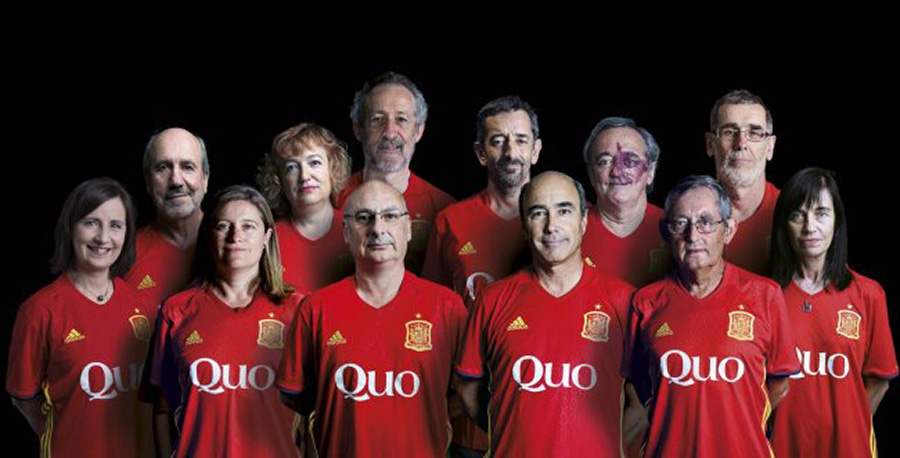Thursday, 06 October 2016
Prof Laura M. Lechuga chosen for the Selección Española de la Ciencia 2016
Four women and nine men from different scientific fields received the “official T-shirt” of the Selección Española de la Ciencia (Spanish National Science Team) in a gala organised by the Spanish National Research Council (CSIC) and the Quo magazine.

 A tribute to brilliant scientists from Spain was celebrated on Tuesday October 4, at CSIC headquarters (Madrid). The main goal of the Selección Española de la Ciencia, an initiative led by Quo magazine and CSIC, is to recognize the daily efforts made by people dedicated to science in order to improve the lives and future of us all. The winners of the third edition work on spare part surgery, egyptology, ophthalmology, oncology, physics, oenology and nanotechnology. This last area was personified by Prof Laura M. Lechuga, Group Leader at ICN2.
A tribute to brilliant scientists from Spain was celebrated on Tuesday October 4, at CSIC headquarters (Madrid). The main goal of the Selección Española de la Ciencia, an initiative led by Quo magazine and CSIC, is to recognize the daily efforts made by people dedicated to science in order to improve the lives and future of us all. The winners of the third edition work on spare part surgery, egyptology, ophthalmology, oncology, physics, oenology and nanotechnology. This last area was personified by Prof Laura M. Lechuga, Group Leader at ICN2.
Prof Laura M. Lechuga was interviewed by Quo magazine. She had the opportunity to explain her investigation: with her team she develops nanophotonic sensors with biological selective receptors. It means that the ICN2 Nanobiosensors and Bioanalytical Applications Group focuses on the creation of devices able to detect diseases such as tuberculosis, colon cancer, malaria, AIDS or pneumonia with a small sample of urine, blood or saliva. The devices designed by her Group consist of parallel nanochannels containing different biological receptors. Thus, for example, using only one sample they can diagnose different pathologies.
During the interview she underlines two main goals of her research. On one hand, to enhance the portability of the devices: a chronically ill person could be controlled remotely without sending the analysis to the laboratory. On the other hand, to reduce the cost of the devices: that would make them affordable for developing countries. Their final objective is to use low-cost technologies to socialize diagnosis. Prof Laura M. Lechuga’s investigations and future plans fit extremely well in the spirit of the Selección Española de la Ciencia 2016.

